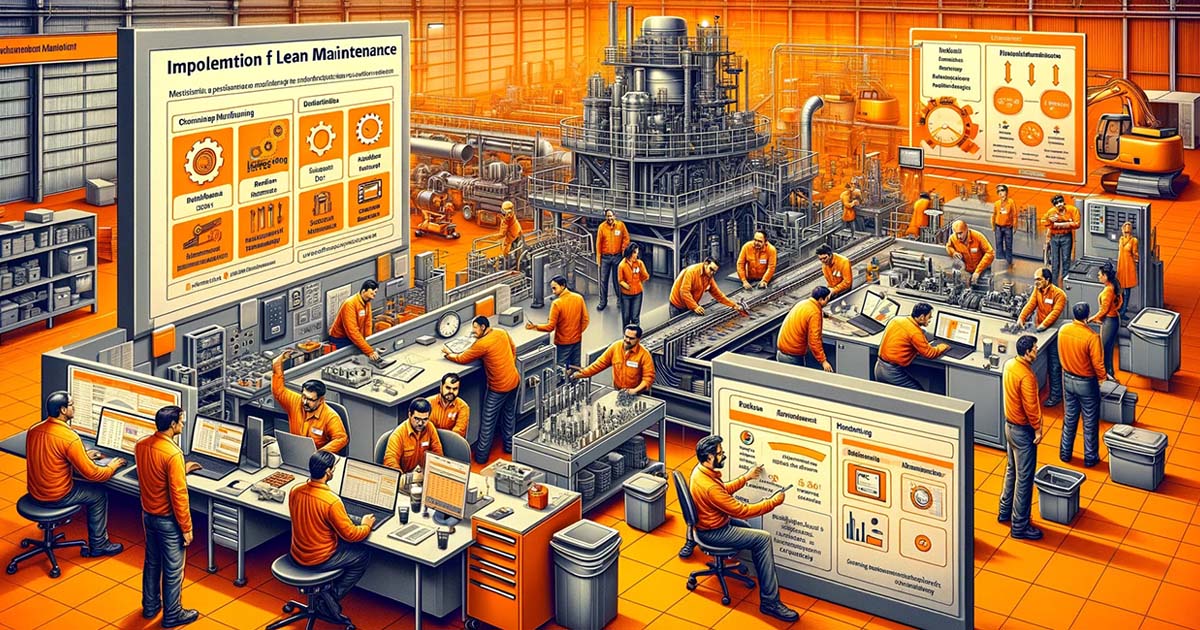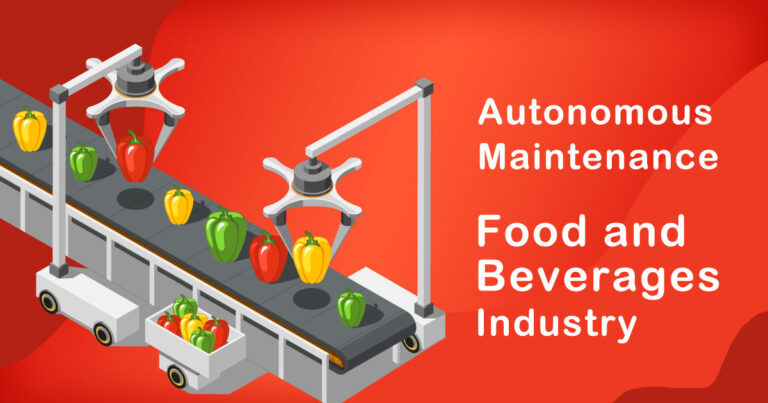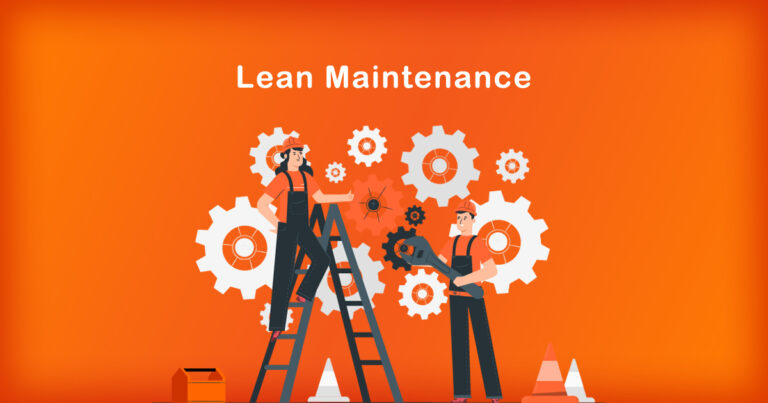Maintenance is a crucial aspect of any manufacturing or industrial process. It ensures that machines and equipment function efficiently and optimally, resulting in maximum productivity and minimum downtime. However, traditional maintenance practices are often inefficient and costly. This is where Lean Maintenance comes into the picture. It is a modern approach that aims to eliminate waste, increase efficiency, and reduce costs. In this blog, we will discuss the implementation of Lean Maintenance in the Indian context.
Understanding Lean Maintenance
Lean Maintenance is an approach that focuses on optimizing maintenance processes and practices to eliminate waste and increase efficiency. The principles of Lean Maintenance are derived from the principles of Lean Manufacturing, which aims to eliminate waste and increase efficiency in the production process. The core principles of Lean Maintenance include:
- Preventive Maintenance: Lean Maintenance emphasizes preventive maintenance over reactive maintenance. This means that maintenance activities are planned and scheduled in advance to prevent breakdowns and unplanned downtime.
- Continuous Improvement: Lean Maintenance is a continuous process that involves constantly identifying and eliminating waste, improving processes, and increasing efficiency.
- Standardization: Lean Maintenance involves standardizing maintenance processes and practices to ensure consistency and eliminate variations.
- Visual Management: Visual Management is an essential aspect of Lean Maintenance, where visual aids such as charts, graphs, and diagrams are used to monitor and track maintenance activities.
Benefits of Lean Maintenance
Implementing Lean Maintenance has several benefits, some of which are:
- Increased Efficiency: Lean Maintenance eliminates waste and streamlines maintenance processes, resulting in increased efficiency and productivity.
- Reduced Downtime: Preventive maintenance reduces unplanned downtime, resulting in increased machine availability and reduced production losses.
- Cost Savings: Lean Maintenance reduces maintenance costs by eliminating waste and increasing efficiency, resulting in significant cost savings.
- Improved Safety: Lean Maintenance emphasizes the importance of safety in maintenance activities, resulting in improved safety outcomes.
Implementing Lean Maintenance in India
India is a rapidly developing country with a vast manufacturing sector. However, the maintenance practices in India are often outdated and inefficient, resulting in high maintenance costs and downtime. Implementing Lean Maintenance in India can significantly improve maintenance efficiency and reduce costs.
One of the key challenges in implementing Lean Maintenance in India is the lack of awareness and understanding of the concept. Many maintenance personnel in India are not familiar with the principles of Lean Maintenance and the benefits it offers. Therefore, there is a need to create awareness and educate maintenance personnel about Lean Maintenance.
Another challenge is the lack of standardization in maintenance practices in India. Maintenance practices vary widely across different industries and organizations, making it difficult to implement standardized Lean Maintenance practices. Therefore, there is a need to develop standardized Lean Maintenance practices that can be applied across different industries and organizations.
Research and Facts
A study conducted by the Indian Institute of Technology Delhi found that implementing Lean Maintenance in a textile manufacturing plant in India resulted in a 37% reduction in maintenance costs and a 25% reduction in downtime. The study also found that Lean Maintenance resulted in improved maintenance efficiency and increased machine availability.
Another study conducted by the Indian Institute of Technology Kharagpur found that implementing Lean Maintenance in a power plant in India resulted in a 60% reduction in maintenance costs and a 50% reduction in downtime. The study also found that Lean Maintenance resulted in improved safety outcomes and increased employee engagement.
Conclusion
In conclusion, implementing Lean Maintenance in India can significantly improve maintenance efficiency, reduce costs, and increase machine availability. However, there is a need to create awareness and educate maintenance personnel about the principles of Lean Maintenance and the benefits it offers. There is also a need to develop standardized Lean Maintenance practices that can be applied across different industries and organizations. By implementing Lean Maintenance, India can achieve significant improvements in its manufacturing sector and remain competitive in the global market.








